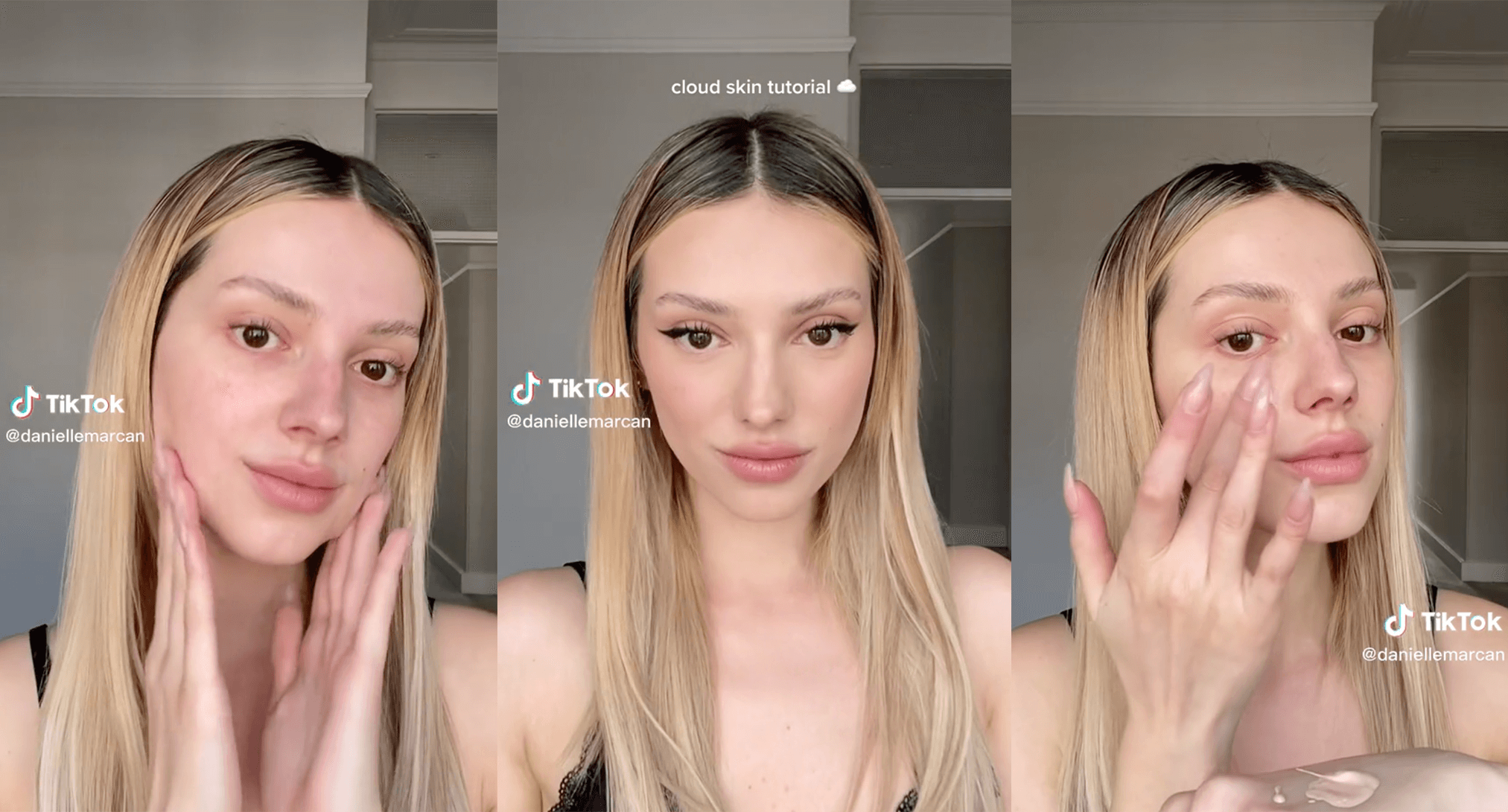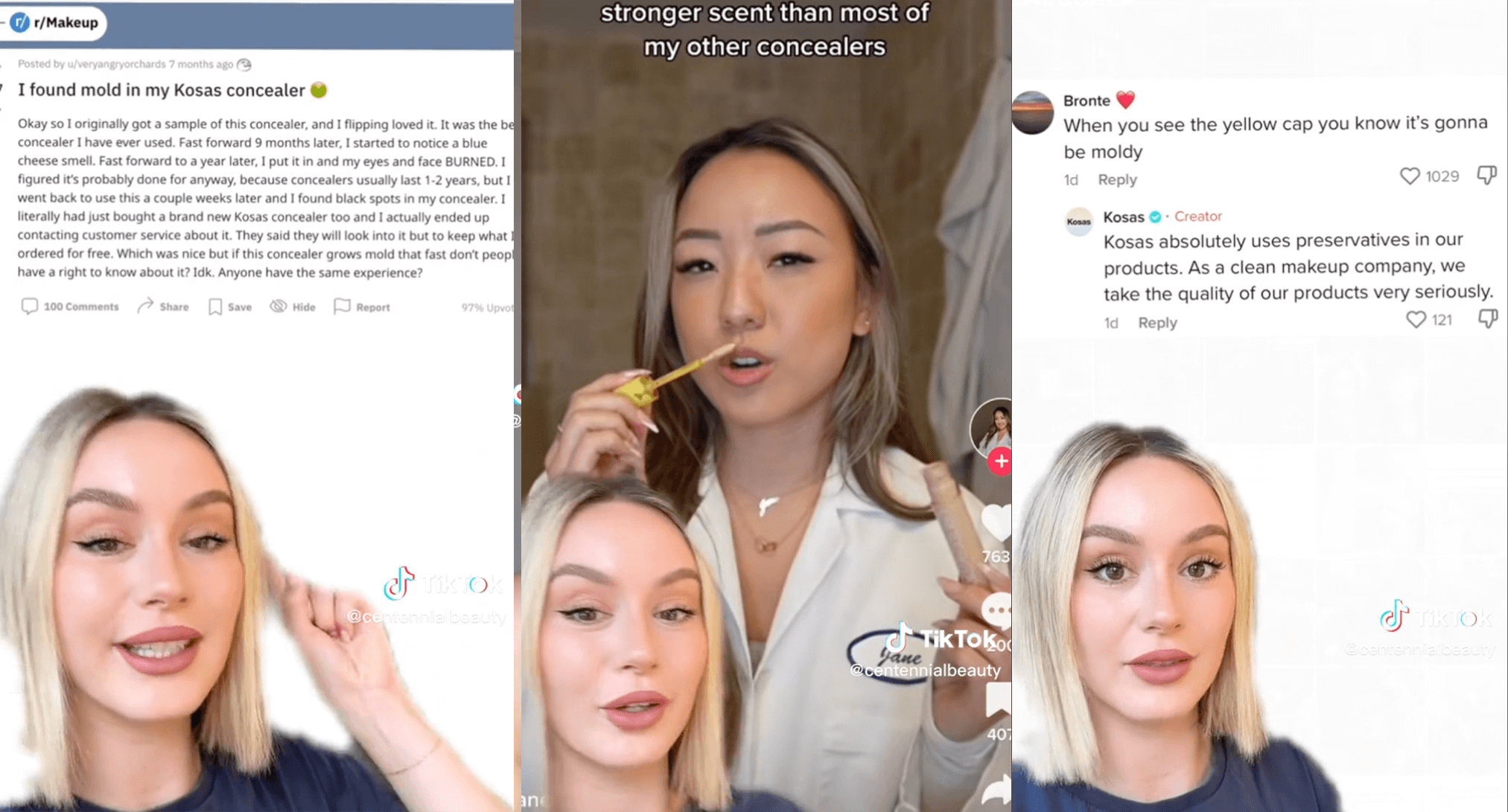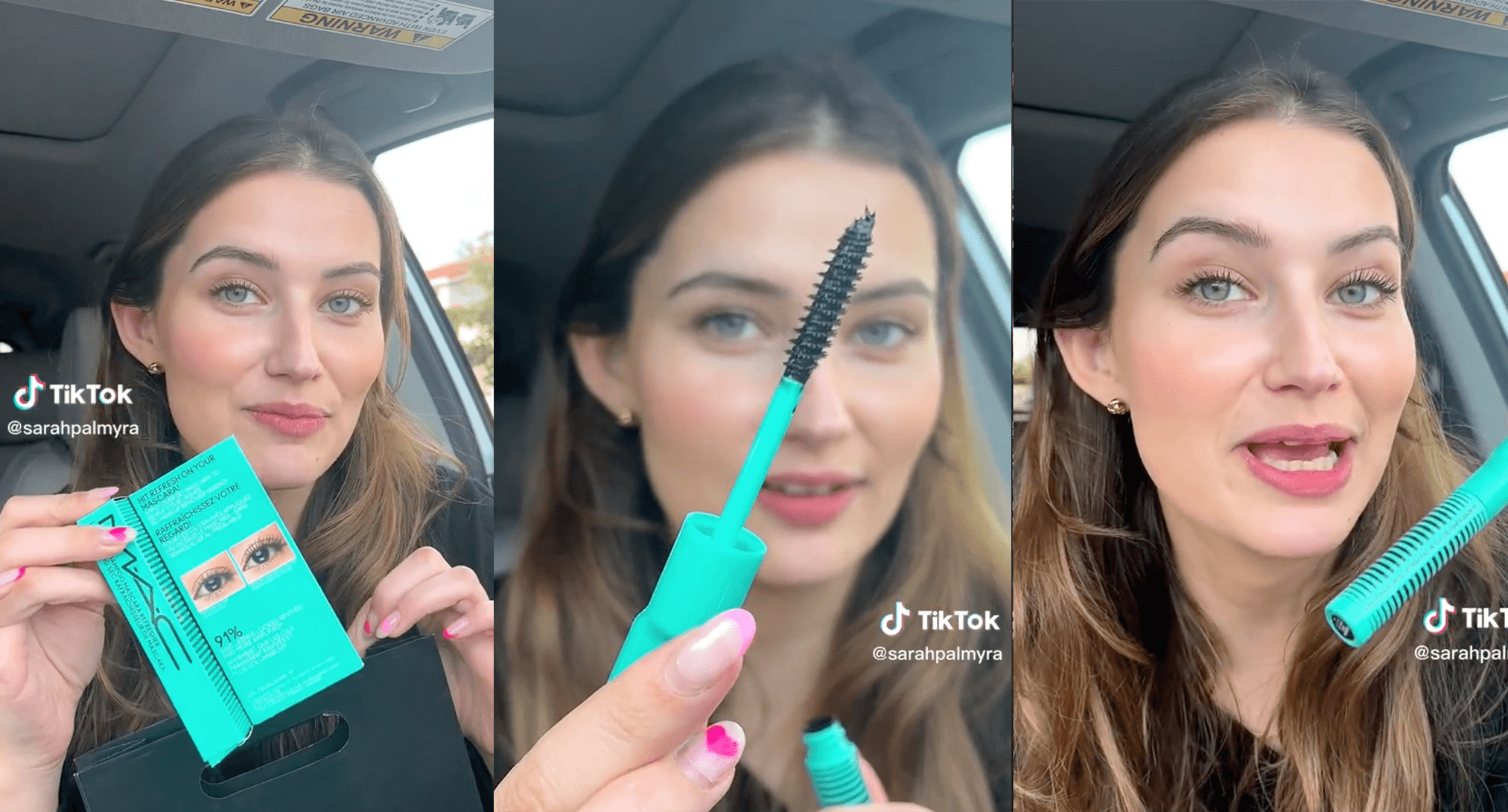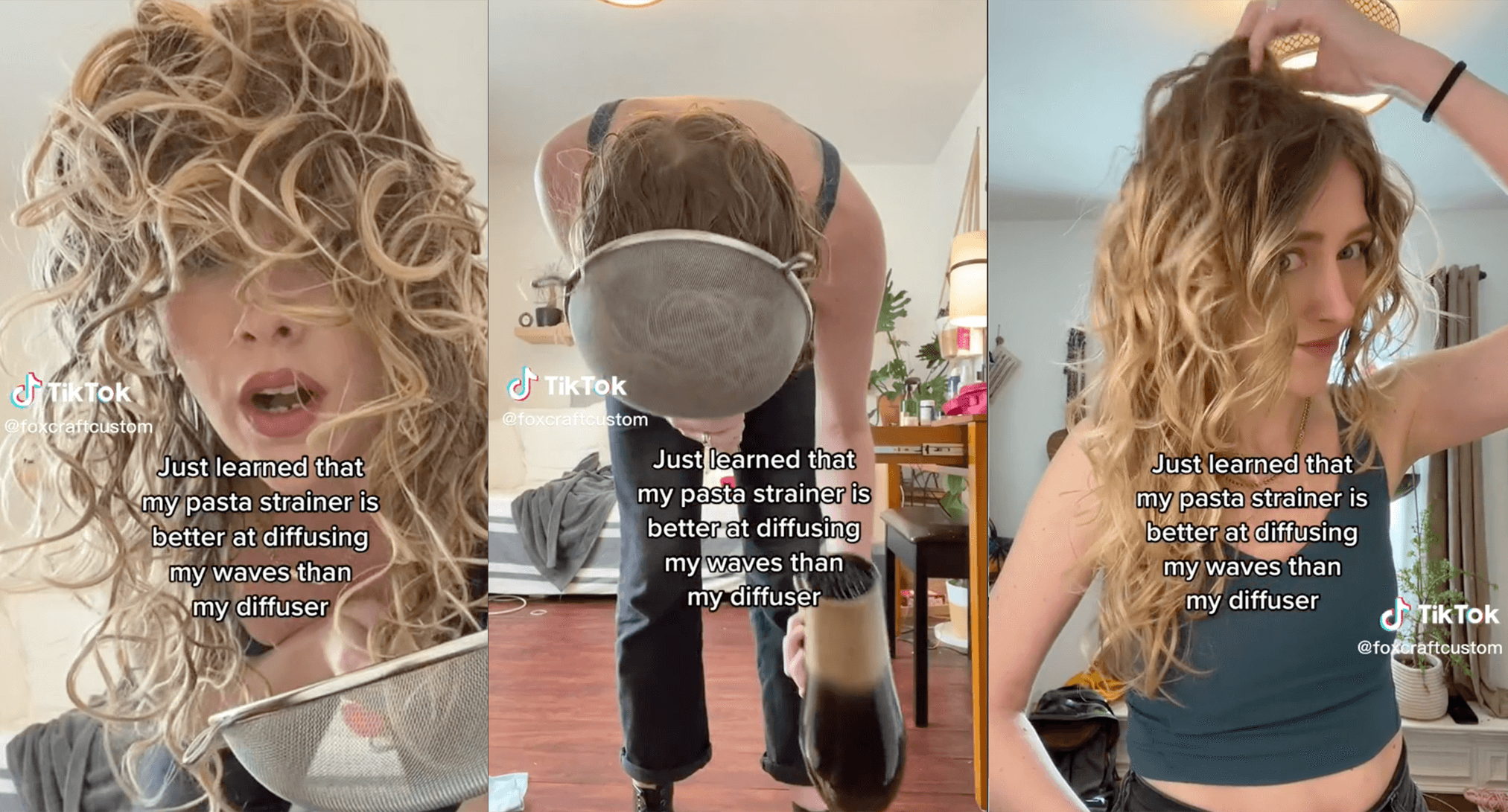In February, TikTok saw a varying range of trends. Some have gone back to basics, expressing the need for a good moisturizer before makeup to achieve a flawless finish—now known to the internet as cloud skin. Others have delved further into the technical side of products, with many exploring clean beauty formulations and sharing their two cents on expiration dates due to backlash surrounding mold in Kosas concealers. Here are the beauty topics that trended on TikTok throughout February:

Cloud Skin
An easily achievable trend, cloud skin is simply the process of ensuring the face is hydrated before applying matte foundation. The outcome―a soft, perfectly matte finish―resembles a cloud—light, and fluffy. The process to achieving the look is even more simplistic, yet has still warranted endless tutorials on the app, instructing viewers to apply a hydrating moisturizer followed by a dewy primer and, finally, their matte face products. The trend rose to popularity after TikTok creators began praising the makeup of models Kendall Jenner and Hailey Bieber, who have been seen wearing the makeup technique lately. This popular way of applying makeup has led to multiple influencers teaming up with cosmetics brands for sponsored content. For example, @danillemarcan's partnership tutorial video using Clinique's Even Better Clinical Serum Foundation. The video received over 913K views within its first week of being uploaded.

Moldy Makeup Scandals
After a post on Reddit addressing mold in clean beauty brand Kosas' concealer gained several upvotes, TikTok users began to discuss the issue, commenting on whether they believed the claims were valid. In several videos, users suggested they found mold in their concealer, yet a large percentage did not actually show any evidence. Chemists and formulation experts took to the app to clarify the situation. A popular video from @janethechemist explained that if the main preservatives of potassium sorbate and sodium benzoate are used within the product, they are enough to pass testing standards before the product is retailed but will result in quicker expiration. The video has received almost 300K views, opening the door for speculation.
Many have commented on the irony of the products being marketed as clean beauty because the movement is often known for cleaner and safer products and is now facing backlash for the complete opposite. In contrast, others have jumped to Kosas' defense, explaining that consumers should expect to encounter such issues if they continue to demand products that do not contain certain chemicals for preservation purposes. Several users also pointed out that those using these products often ignore the use-by date and are shocked when their products become moldy. In response, Kosas stated, "We can't speak broadly to clean-beauty shelf life versus other products'. We can only confirm that we do use safe, effective preservatives. We use antimicrobial stabilizers that protect against mold, yeast, and pathogens when the package is used within its shelf life and PAO [period after opening] dates."
The debate on moldy makeup continues across TikTok, with users now reviewing the contents of several products. With the app continuing to create self-proclaimed makeup critics, it is arguably now more important than ever for brands to be transparent about their product formulations and ensure they have done everything possible to make their products safe. After all, a viral mishap moment could have dire consequences when put into the hands of Gen Z.

Eyelash Dry Shampoo
Eyelash dry shampoo was created for those who wish to refresh their eyelashes several hours after applying mascara, mimicking the effects of regular dry shampoo for hair. The product gaining the most traction from this viral moment is MAC Cosmetics Lash Dry Shampoo Mascara Refresher. It claims to soften pre-applied mascara, making it easier for lashes to avoid clumping upon reapplication. The product’s TikTok fame is not the first time MAC Cosmetics has experienced such attention. Previously, its Stack Mascara made its way onto several "TikTok made me buy it" lists.
Countless content creators have reviewed the product and its effectiveness, leading to mixed reviews. In a video by @sarahpalmyra, which has accumulated 100K+ views, Palmyra compares the before and after effects of using the product, praising it heavily but still staying true to January's deinfluencing trend. She tells followers, "Of course you don't have to buy this if you don't want to." In the comments, many viewers debate whether this product is worth buying. Some suggest a simple clean spooly is enough to separate lashes, followed by another coat of mascara. One comment read, "I bought it, and it makes my lashes look so clumpy. My BF couldn't tell I had mascara on all day until I applied this." Despite the varying opinions, the product has gained considerable interest, with the subject of dry shampoo for eyelashes being on the tip of many beauty TikTokers' tongues.

Colander Curls
Every month there is a new hair-curling craze. Last month the double curl method captured users' attention, and shortly before, forced curl routines had trended. In February, creating curls with kitchen appliances was the latest curling commodity. While most would typically use a diffuser, with this trend, others seek results from colanders and sieves typically used to strain liquids from food. With the trend, users wash their hair, add curl creams and leave-in products for the best results, and place their strands into the appliance. Next, they turn on a hairdryer to maximum heat and use the duo as a DIY diffuser. The practice has sparked debates in the comments on its effectiveness and the potential risks involved—including the hot temperature of the metal of the colander, which can burn the skin, or hair becoming trapped within the strain holes. Regardless, users are still attempting the trend, with a video from @foxcraftcustom bringing in a staggering 24.1M views as the creator claims, "This pasta strainer is better at diffusing my waves than my actual diffuser."